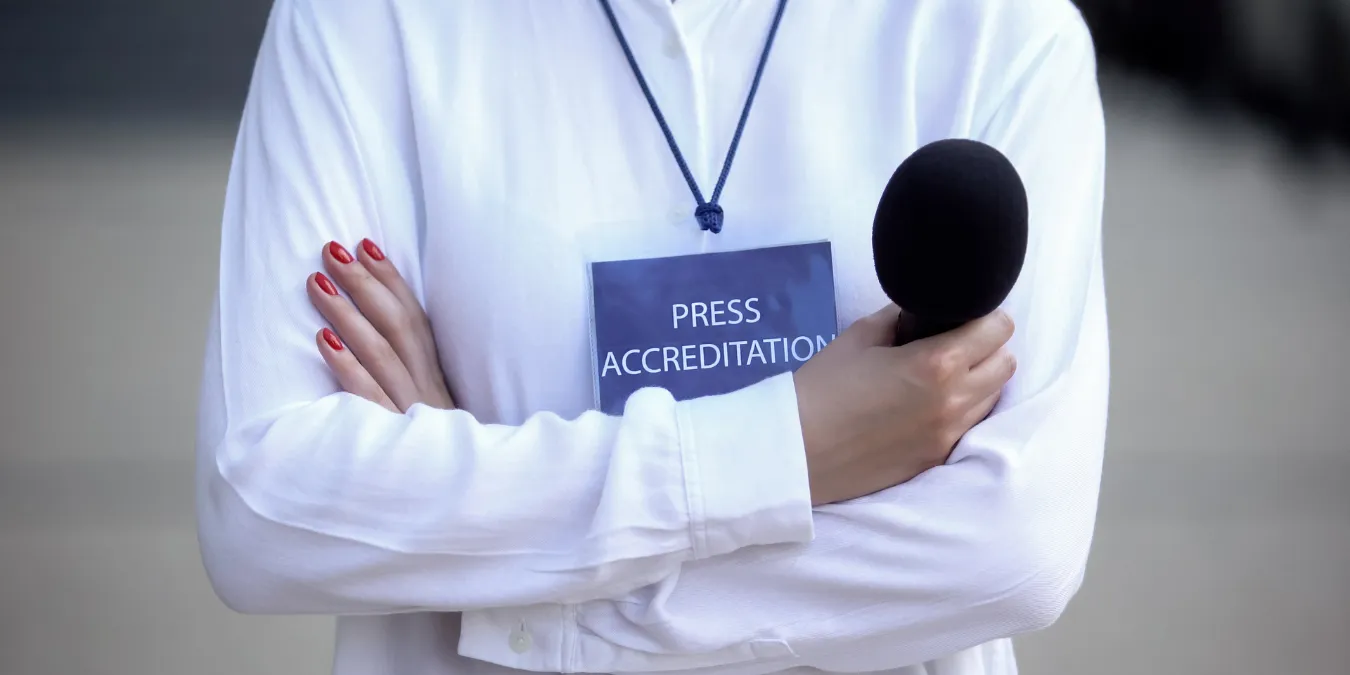Freedom of Speech Should Not Be Restricted by Journalist Accreditation Rules

Yesterday, the Ministry of Culture and Information published a draft of standard rules for journalist accreditation and the issuance of accreditation cards on the "Otkrytye NPA" portal.
Provisions that members of the working group successfully had removed from the draft Law "On Mass Media" have now been included in these subordinate acts. No rules or subordinate acts should contradict the law or impose greater restrictions on journalists.
1.The draft accreditation rules do not address the main question that concerns journalists: are non-accredited journalists entitled to receive information from accrediting organizations?
The general rights of journalists are reflected in paragraph 3 of Article 26 of the Law "On Mass Media": the right to receive information; visit state bodies, organizations of all forms of ownership, and be received by their officials; make recordings, including using audiovisual equipment; and access documents and materials, except for information constituting state secrets or other secrets protected by law, etc.
The Law "On Mass Media" also contains other norms related to accreditation; however, nowhere is there a direct prohibition on journalists without accreditation from receiving information, accessing documents, visiting state bodies and organizations, or being received by their officials without prior accreditation.
According to paragraph 2 of Article 28 of the Law "On Mass Media", state bodies and/or organizations where a journalist is accredited are obliged to inform them in advance about meetings, conferences, and other events, and provide them with transcripts, minutes, and other documents. Non-accredited journalists also have the right to visit state bodies and organizations, access documents of accrediting organizations, etc., on general grounds.
Therefore, a journalist should not be deprived of their rights due to a lack of accreditation, and accredited journalists only receive additional "bonuses" in the form of personal advance notifications of events and pre-prepared copies of documents. For non-accredited journalists, state bodies or organizations provide official announcements (notifications of upcoming events, etc.) on equal terms by publishing them on their websites, as stipulated by paragraph 2 of Article 35 of the Law "On Mass Media".
According to paragraph 2 of Article 20 of the Constitution, everyone has the right to freely receive and disseminate information by any means not prohibited by law. Therefore, if the law does not prohibit non-accredited journalists from attending events of the accrediting organization, non-accredited journalists have the right to attend any open events, and organizations are, accordingly, obliged to allow non-accredited journalists to these events on general grounds.
2. The draft accreditation rules include regulations implying that the information received from state bodies is not public domain. Information disseminated to journalists is not proprietary, protected by copyright, and therefore its distribution to third parties cannot be restricted.
Subparagraph 1) of paragraph 10 of the draft standard rules for journalist accreditation, which states that an accredited journalist is not entitled to disseminate information received from the accrediting state bodies and organizations to other media, besides the media outlet that applied for the accreditation, clearly contradicts the aforementioned Article 20 of the Constitution, as the prohibition is planned to be introduced by a subordinate act, not by law.
All obligations of a journalist are reflected in the law. Additional obligations, especially those such as the publication of information received from the accrediting organization only in the media that requested the accreditation, contradict the legislation and are impractical.
3.The draft rules differ from the current ones in that, instead of the obligations of the accrediting organization (these points have simply been removed), new obligations have been introduced for accredited journalists. The purpose of the standard rules for journalist accreditation is to ensure a minimal basic standard for simpler and more prompt access to information for accredited journalists.
The new draft of the standard rules for accreditation suggests that the accrediting organization itself establishes the procedure, deadlines for accepting and reviewing applications, "considering the specifics of its activities".
The draft rules no longer include provisions on the obligations of the accrediting organization towards the accredited journalist – such as promptly informing them about events, providing access to events, supplying transcripts, documents, etc.
Adil Soz believes that the rules regulating the work of journalists and media should facilitate access to information, not complicate it. When drafting the rules, the norms of international obligations in the field of freedom of speech, undertaken by the Republic of Kazakhstan, the Constitution, and existing legislation must be strictly observed.
4.The draft standard rules impose new grounds for revoking accreditation that are not provided for by law and therefore contradict it.
Standard rules cannot establish new grounds for revoking accreditation that are not provided for by law. The rules should provide answers to such questions as how violations will be recorded, the methods and forms of appealing the denial of accreditation, the terms for obtaining accreditation, etc. These issues are not detailed in the law.
In its current form, the draft standard rules are illegal, and if adopted, should be challenged in the Constitutional Court as a document unlawfully restricting freedom of speech in Kazakhstan.
RECOMMENDATIONS
Adil Soz recommends that the authorized body hold discussions on the standard rules with experts to improve the text of the rules and bring them in line with the legislation of the Republic of Kazakhstan. Detailed proposals on the rules' points will be sent from our foundation to the Ministry of Culture and Information of the Republic of Kazakhstan.





